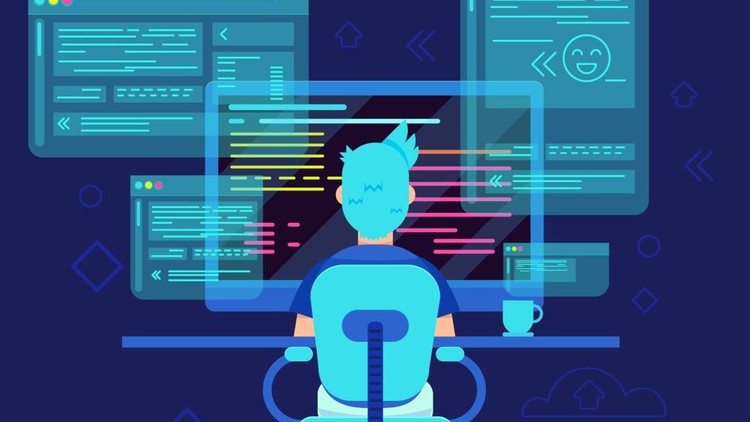
A software development and engineering course about learning basics to doing internships to getting a job and growing!
What you will learn
What all to do to become a successful Software Developer-Overview
What to learn and practice to become a software developer
How to prepare for software developer interviews
How to apply for software development internship and jobs
How to explore career growth in software development
Add-On Information:
Note➛ Make sure your 𝐔𝐝𝐞𝐦𝐲 cart has only this course you're going to enroll it now, Remove all other courses from the 𝐔𝐝𝐞𝐦𝐲 cart before Enrolling!
- Master the foundational pillars of modern software engineering, building a robust understanding of data structures, algorithms, and object-oriented principles that form the bedrock of efficient and scalable code.
- Cultivate a problem-solving mindset through hands-on projects that simulate real-world challenges, enabling you to translate complex requirements into elegant and functional software solutions.
- Develop proficiency in at least one core programming language and its associated ecosystem, equipping you with the practical skills to build applications from concept to deployment.
- Gain insights into the software development lifecycle (SDLC), from initial planning and design through coding, testing, deployment, and maintenance, understanding the collaborative nature of team-based development.
- Learn to leverage version control systems like Git for collaborative development and effective code management, a crucial skill for any professional programmer.
- Explore essential testing methodologies, including unit testing, integration testing, and end-to-end testing, to ensure the quality and reliability of your software.
- Understand the principles of clean code and best practices, fostering maintainability, readability, and collaboration among development teams.
- Gain exposure to database concepts, including relational and NoSQL databases, and learn how to interact with them effectively within applications.
- Demystify the world of application architectures, learning about different patterns and paradigms that contribute to robust and scalable software systems.
- Enhance your debugging skills to efficiently identify and resolve issues, a critical component of the software development process.
- Build a portfolio of impactful projects that showcase your technical abilities and demonstrate your readiness for professional roles.
- Craft a compelling resume and online presence that highlights your skills and project experience to attract potential employers.
- Learn to network effectively within the tech industry, connecting with mentors and peers to expand your professional circle.
- Understand the ethical considerations and responsibilities inherent in software development.
- Develop adaptability and a growth mindset to thrive in the ever-evolving landscape of technology.
- PROS:
- Provides a comprehensive roadmap from novice to job-ready.
- Emphasis on practical application and portfolio building.
- Focus on interview preparation and career advancement.
- CONS:
- Requires significant personal dedication and consistent practice outside of structured learning.
English
language